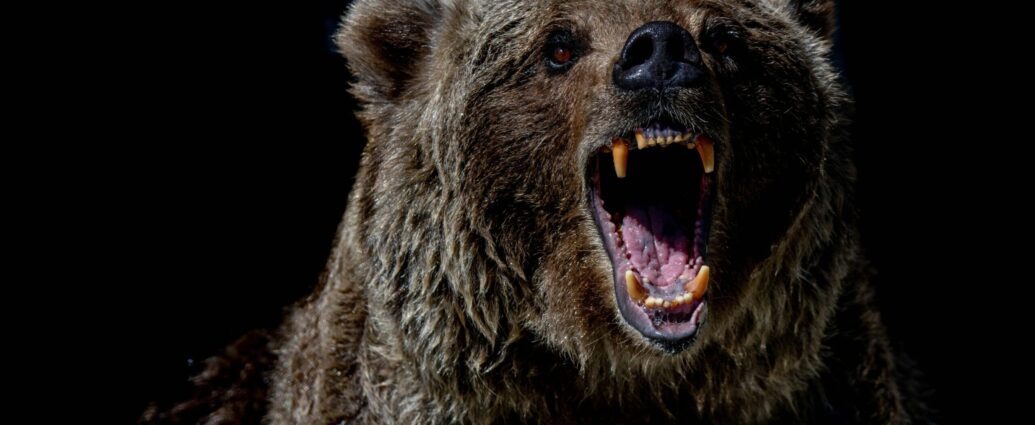Marie Kouppi
Imagine you are alone in the woods. It’s just the sound of rustling leaves against the crisp air. You are faced with a decision: spend the night with a bear or a strange man?
However, this hypothetical situation isn’t just a thought experiment for women. For many, it’s a vivid illustration of their everyday anxieties. Men are perceived as a danger — and not without reason. A widely shared meme has revealed many would take their chances alone in the woods with a bear rather than a man.
But why? What does this meme indicate about our society?
The Birth Of The Viral Meme
Recently, the “bear vs. man” meme went viral on social media, specifically TikTok. It began as a casual conversation, but swiftly evolved into a cultural phenomenon and example of institutional sexism.
The meme gained popularity after a TikTok video was posted by ScreenshotHQ. The video includes two hosts discussing a hypothetical encounter between a bear and a guy in the woods.
“Nearly one-third of women globally have experienced physical and/or sexual violence“
Many women responded to the notion by posting their own ideas and experiences in the comments section.
On 19 March, TikTok user callmebkbk reacted to another user’s claim that encountering a man is safer than encountering a bear. In response, he underlined the hazards guys may pose, which are considerably larger than that of a bear. Another user echoed and reinforced this attitude, giving real-life examples of the worries many women deal with on a regular basis.
The Deeper Meaning Behind the Choice
Women are taught to be suspicious of men from an early age. Students are trained to carry pepper spray, avoid going on nighttime walks alone, look under the seats in their cars before getting in and never leave their drinks unattended. These safety measures are not simply for personal protection. They are also necessary to survive in a society where male aggression is a constant danger.
Nearly one-third of women globally have experienced physical and/or sexual violence, predominantly at the hands of men. In contrast, bear attacks are exceedingly rare. Over 15 years, there were only 664 bear attacks worldwide and these resulted in very few fatalities. But the fear of men is not about statistical probability. It’s about the constant threat of gender-based violence.
Bear vs man serves as a metaphor for deep mistrust and anxiety. A bear will either ignore you or, if provoked, attack you. This is somewhat predictable. But men may be even more sneaky with their threats. Not only is the risk of physical pain a source of anxiety, so is the possibility of sexual violence and psychological trauma. Because many women are attacked by those close to them, it is difficult to trust any men.
Mansplaining and Male Awareness
The male reaction to the meme reveals a significant gap in understanding women’s experiences with misogyny. Mansplaining, in which men dismissively explain things to women, rejects women’s legitimate anxieties.
This attitude is reflected in comments from men who argue that bear assaults are statistically unlikely compared to male aggression. Many claim women’s anxieties are irrational or overblown.
“I’m scared of both the bear and the man, but I know that my abuser wasn’t a bear”
These responses disregard the larger context of systemic gender-based violence and threats that women face. Women have no way of knowing which men are safe and which aren’t, leading to a generalised but rational fear.
Would I Choose The Bear?
The decision between a bear and a guy in the woods isn’t just hypothetical for me. It represents the very genuine anxieties that influence my day-to-day existence.
I recall all the times I’ve called my dad and put him on speaker to withdraw unwanted attention. On innumerable occasions, I’ve clenched my keys between my fingers in case I am attacked.
Although the fear of bears is real, it stems from a dread of the unknown and the unpredictable character of the natural world. On the other hand, the dread of men stems from the known and innumerable accounts of violence they have heard about. Everyone knows at least one woman who has been victimised by a man.
I’m scared of both the bear and the man, but I know that my abuser wasn’t a bear.
READ NEXT:
Featured image courtesy of Mana5280 on Unsplash. No changes made to this image. Image license found here.


 Currently a teacher but silently crying about my PhD about ‘British Morals and their Impact on Societal Censorship in Arts!
Currently a teacher but silently crying about my PhD about ‘British Morals and their Impact on Societal Censorship in Arts!